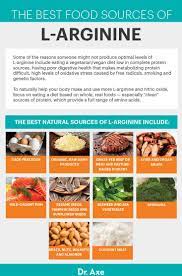Updated on April 23, 2024

What is L-arginine side effect?
L-arginine is an amino acid that is commonly used as a supplement for its potential benefits for workout performance, blood flow, and erectile dysfunction. While it is generally considered safe, there are some potential side effects associated with L-arginine supplementation.
Some common side effects of L-arginine supplementation include:
- Stomach discomfort or nausea
- Diarrhea
- Allergic reactions in some individuals
- Changes in blood pressure or heart rate
It is important to talk to a healthcare provider before starting L-arginine supplementation, particularly if you have a history of low blood pressure or kidney disease. L-arginine can interact with certain medications, including blood pressure medications and Viagra, and may be contraindicated in some individuals.
In terms of dosage for workout performance, the optimal dose of L-arginine for this purpose is not well established. Some studies have used doses ranging from 6g to 9g per day, while others have used lower doses. It is generally recommended to start with a lower dose and gradually increase it, while monitoring for any side effects.
It is important to remember that L-arginine supplementation is not a substitute for a healthy diet and regular exercise, and should be used in conjunction with these lifestyle changes for optimal results.
What nutrients are good to take with arginine?
L-arginine is an amino acid that is involved in the production of nitric oxide, which plays a role in blood flow and cardiovascular health. While L-arginine can be obtained through the diet and is also available as a supplement, it is often recommended to combine L-arginine supplementation with other nutrients to maximize its potential benefits.
Some nutrients that may be beneficial to take with L-arginine include:
- L-citrulline: This amino acid is involved in the production of nitric oxide and may enhance the effects of L-arginine. L-citrulline is often included in pre-workout supplements for its potential benefits for exercise performance.
- Vitamin C: This antioxidant vitamin can help to protect against oxidative stress, which can damage cells and tissues. Vitamin C may also help to improve the bioavailability of L-arginine in the body.
- Coenzyme Q10: This antioxidant nutrient is involved in energy production in the body and may help to support cardiovascular health. Some research suggests that combining L-arginine with coenzyme Q10 may enhance the benefits for blood flow and cardiovascular health.
- Omega-3 fatty acids: These healthy fats are important for heart health and may help to enhance the effects of L-arginine on blood flow and cardiovascular health.
It is important to talk to a healthcare provider before starting any new supplements, including L-arginine and other nutrients. They can help to determine the appropriate dosages and whether there may be any interactions with other medications or health conditions.

